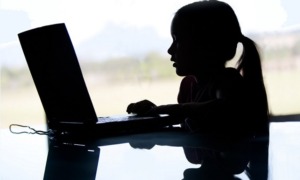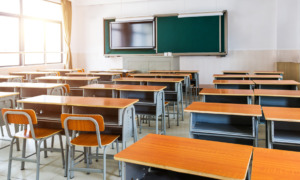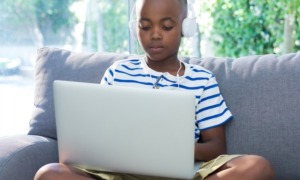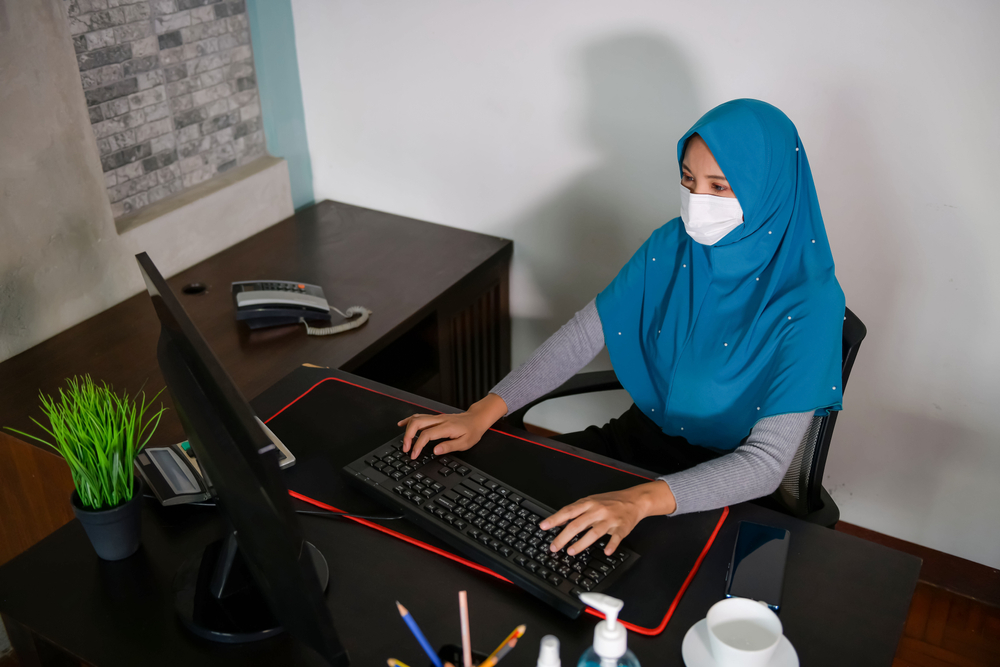
Nong2/Shutterstock
.
For most of us in this country the idea of social distancing is a new one. When we greet each other it is usually with a handshake, a hug or even a kiss on the cheek. However, these days we are told that this type of interaction is dangerous and could spread the coronavirus if we don’t stay at least 6 feet away from one another.
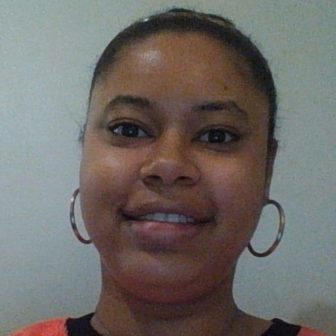
Deandra Mouzon
Although the need for social distancing came about because of the COVID-19 virus, some believe it may become the new normal. New York Gov. Andrew Cuomo recently said remote virtual learning may replace traditional schooling in the future. These changes, coupled with my own experiences, have made me think about the value of the internet during this pandemic.
As a practicing Muslim, I have been observing Ramadan for the past two weeks. During this time we fast, not eating or drinking anything from sunrise to sunset. This goes on for 30 days. When the holy month is over, we celebrate the holiday called Eid al-Fitr.
Typically, throughout the month of Ramadan, we are encouraged to pray together, give zakat (charity), break bad habits and read the Quran. With social distancing in effect, things have been different this year. Masjids (or mosques) have been closed so we can’t gather for prayer. The Kaaba in Mecca was closed to people who wanted to visit for umrah (a nonmandatory pilgrimage), and Muslims everywhere have had to give charity virtually instead of in person.
Personally, I have been doing my best to stay positive and remember that, while I am observing Ramadan on my own this year, I am still fortunate to be able to fulfill my duties as a Muslim with the help of modern technology. I have watched online videos and lectures about Ramadan and I have given charity through Irusa.org. I have connected with brothers and sisters around the world through social media and I am happy to say that so far this Ramadan has been uplifting and rewarding.
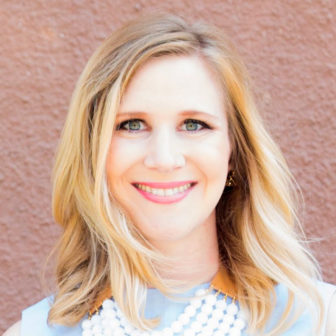
Natasha Mooney Walton
The work that I do for youth with disabilities, also done online, has continued to grow, and I have made contacts with people in the community that I feel will be sustained past these difficult times. One young lady, Natasha Mooney Walton, 34, from Denver, is the founder of the Tech Disability Project (TDP) and runs the disability.connect Instagram page. Their mission reads, “Through hosting community events and publishing first person narratives, TDP aims to increase the visibility of our community and broaden access within the industry.”
Walton, who lives with PTSD and fibromyalgia, said she had just started looking for a job when COVID-19 hit, and the timing could not have been worse. Although not being able to find a job was a disappointment, she feels she has built the skills she’s needed to quarantine effectively and feels equipped for the situation. Like me, she also sees how the internet has been a major benefit during the pandemic.
“Many of us already experience mental health symptoms, and social isolation can exacerbate that,” she said. “On the other hand, the disability community already connects digitally, so in that respect many of us have strong digital relationships.”
Although the internet will never be able to replace the warmth of a hug or the firmness of a handshake, it has kept us all connected. And, for the most part, it has allowed us to adapt to the changes we’ve all had to make due to COVID-19. Some people feel that this virus has opened new doors and could lead to a shift in how we operate in the world, causing us to rely more and more on technology. Regardless of where you stand on the role it will play in the future, I think we can all agree that the internet has eased a lot of the stress that we would have had to endure without it.
If you would like to contribute to this column and share your story about life during quarantine with a disabled youth, email me at Deandra@csjournalism.org.
Deandra Mouzon is a Georgia-based journalist who received a B.A. in journalism from CUNY’s York College. Currently she is working on a publication about youth with disabilities.


